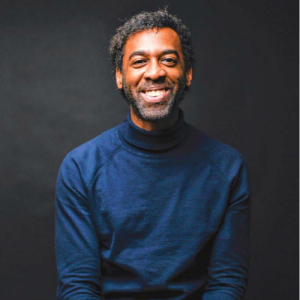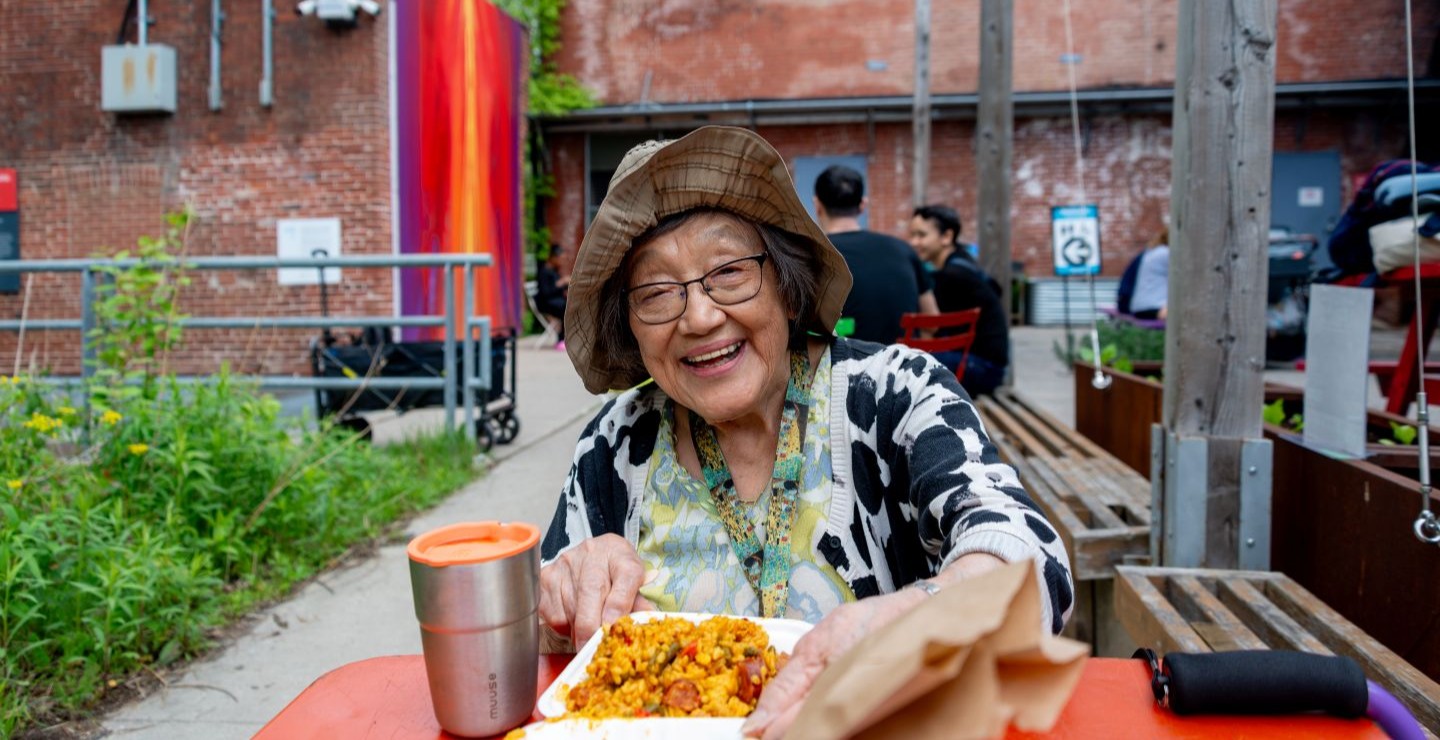
Ian Williams is a Canadian writer, poet and professor of English at the University of Toronto. He is also one of the keynote speakers for the upcoming Evergreen Conference, May 6-7, 2026. Known for his deeply reflective and playful style, Williams will share how dialogue and democracy in public space form the foundation of more connected and just communities.
Evergreen interviewed Williams to learn more about his work and his perspective on public space, conversation and building community.
Evergreen: First of all, our team at Evergreen is so thrilled that you’re joining us as a keynote speaker at our Evergreen Conference next year. Your work is so inventive and speaks to so many important topics from race and identity to communication and social justice. Were you surprised that a conference focused on public spaces invited you to speak?
Ian Williams: Well, I’m thrilled to give this public talk. I’ve been thinking about how ideas spread. What avenues do we have for public conversation and learning? There are a lot of good ideas circulating in a university, say, but they never really leave campus. I’m always ready to do what I can to energize public discourse. Thanks to the team at Evergreen, for bringing together a bunch of curious people. We can learn so much from people outside of our fields so I like to take opportunities to hear how different disciplines approach their work. Public spaces are created by architects, planners, artists, parents, teenagers—all of us. We all overlap in communities.
Evergreen: In your book, What I Mean to Say, you describe the flattening of complexity in contemporary conversation. What promotes healthy public discourse in public spaces and what gets in the way?
Ian Williams: I think actual physical space matters. We clamour for affordable spaces, by which we mean housing, but I think we need to clamour for free public spaces, for protected parks, for paths to walk and bike, for gazebos and outdoor gyms, for libraries, for public squares and lobbies that encourage you to linger. We shouldn’t have to buy anything to feel welcome in a space. These kinds of spaces create points of contact with strangers. It’s one step to dismantling the us-vs-them mindset that’s taking hold of the West. Believe it or not, sharing public space is an antidote to the most toxic elements of social media: status-seeking, blaming, attacking, provoking.
Evergreen: As a professor of English at the University of Toronto, have you observed any changes in the way students have engaged in conversation over the years?
Ian Williams: It’s easy to blame everything on cell phones. I don’t think it’s that simple. The pandemic was hard on us all but especially on students who were transitioning to university. I also think post-pandemic political upheavals are hard on them. Plus the social pressure that they face, which is like peer pressure on steroids, causes students to feel like they need to have arrived at a mature, ethical position without having a journey. Somehow they should just know. I think it’s hard for them to dissent without serious consequences. There’s a real sense that a young person could lose their community for not subscribing to all of its values. But, actually, they should take time to explore ideas, to refine their positions, and to attune their morality.
Evergreen: We’re living through multiple crises at once: climate change, rising inequality, the housing crisis, to name a few. These are big, structural problems. What role do conversations play in building a better world?
Ian Williams: Conversations are essential to building a better world. Sadly, there’s a bit of a bait-and-switch that’s happened in the last few years. We think we’re having conversations but we’re really having a bunch of unfocussed fights that distract us from real progress. While we fight, other powers swoop in, whether they be political or corporate, and advance agendas that are often destructive to the public good. This troubles me. How can the average citizen get their voice to matter again?
For starters, maybe everyone rests their voices for a while. Then we speak very quietly and earnestly to the people closest to us over the breakfast table. Simple conversations, not fights. And we keep talking and listening at every stage of our thinking, not just when we have a solution that we hope to promote. By talking and thinking aloud, incrementally, we can evolve together. We can discover what matters to different people. In that way, solutions will emerge without costing us our relationships. Everyday I can ask, What do you think about X issue today? We can accompany each other as we work out our positions. There is no period on our conversations—question marks but no periods.
Evergreen: Do you have a favourite public space? If so, what makes it special to you?
Ian Williams: Good question. I was at Mount Pleasant cemetery recently with a map, trying to find a particular beech tree. I find cemeteries beautiful and grounding. They’re like a reality check.
To hear more from Williams, join us at Evergreen Brick Works for the 2026 Evergreen Conference. Together, we won’t just learn about how public spaces can enable open and curious conversations, we’ll practice it first hand. Ready to join the conversation?





